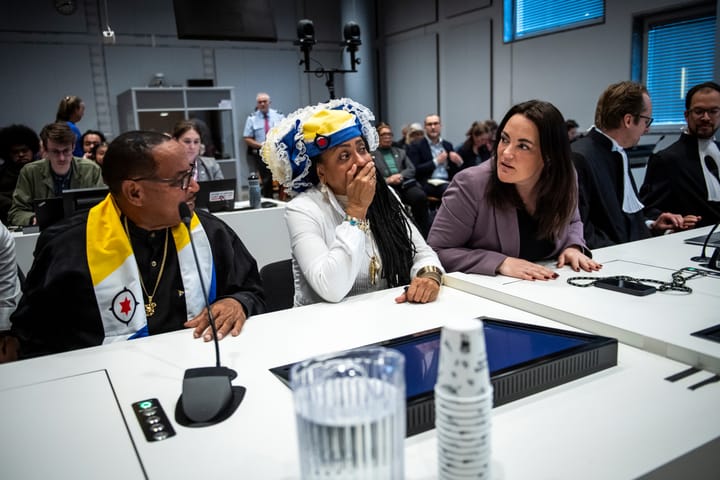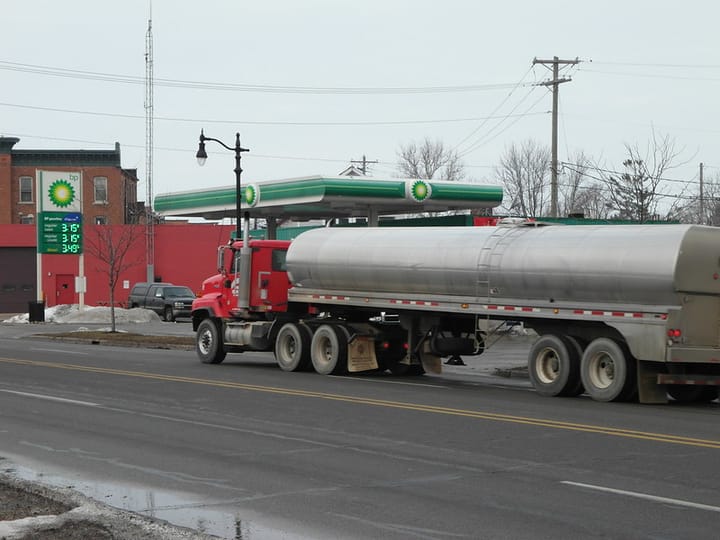Philippine Typhoon Survivors Launch Legal Action Against Shell

Co-published with One Earth Now
In December 2021 a powerful tropical storm gathered strength as it moved through the superheated waters of the Philippine Sea, rapidly intensifying from a category 1 to a category 5 equivalent storm in just 24 hours before making landfall on Siargao Island in the southeastern Philippines. This super typhoon, called Rai or, as Filipinos called it, Odette, ravaged the Philippines, killing over 400 people while severely injuring more than 1,000 and wrecking or destroying 1.4 million homes. It inflicted nearly $1 billion USD in damages, making it the second costliest typhoon in Philippine history at the time, behind only Typhoon Haiyan in 2013.
Now four years later, some of the survivors of this deadly and destructive disaster are embarking on a quest for justice by taking legal action against one of the world’s largest oil and gas companies.
A new, potentially groundbreaking climate case has just been launched against Shell on behalf of 67 Filipino citizens who were seriously injured or lost family members or their homes in the storm. The action seeks to hold Shell liable for damages pertaining to super typhoon Odette, arguing that the oil major has contributed substantially to the climate crisis that science shows is turbocharging extreme weather around the world including severe storms.
A recent extreme event attribution study examining the influence of climate change on Odette found that it “more than doubled the likelihood of a compound event like Typhoon Odette” and concluded that this anthropogenic warming “played a significant role in amplifying the damage.” Greenhouse gas emissions stemming from fossil fuels are the primary driver of anthropogenic climate change, and research suggests that a relatively small number of fossil fuel producers – the so-called ‘carbon majors’ – are responsible for a majority of these planet-warming emissions.
“With fossil fuel emissions being linked to stronger tropical storms like Odette, vulnerable communities like ours are struggling to keep their head above water. This is not acceptable, this is not just, and we must fight,” said Trixy Elle, an Odette survivor and claimant in the new case against Shell.
Lawyers and advocates behind the case say it is the first civil claim directly linking climate impacts of oil and gas companies to death and personal injury that has already occurred in the global South.
A letter has been delivered to Shell’s global headquarters in London outlining the alleged legal violations and demands, which is the first step in legal proceedings. If no agreement can be reached between the parties, a lawsuit would then be filed in court. That filing is expected to happen in December in the UK courts.
The legal claims are being brought under Philippine law, including alleged violations of the Philippines Civil Code and the country’s constitution that guarantees its citizens the right to a healthful environment. Claimants are seeking financial compensation for the loss and damage they suffered, in line with the ‘polluter pays’ principle, and potential injunctive relief to prevent further constitutional rights violations.
In the letter sent to Shell, called a Letter Before Action, lawyers for the claimants argue that Shell’s decisions and actions to continue producing oil and gas, despite full knowledge of the climate change consequences, constitutes negligence and willful violation of claimants’ rights. The case, according to a news release, “will also highlight Shell’s deliberate deception and efforts to slow down the energy transition away from fossil fuels by engaging in lobbying, disinformation, and obfuscation of climate science.”
Evidence that has emerged in recent years shows that Shell had extensive internal knowledge of the projected climate change impacts associated with its products, yet worked with its industry peers to distort public understanding of climate science and delay policy actions.
“For years, Shell knew fossil fuels could cause dangerous climate change. They had the chance to change course. Instead, they misled the public and helped block our shift to clean energy, all to protect their profits. Now we’re all paying the price with typhoons, floods, and fires,” said Tessa Khan, an international climate change lawyer and executive director the UK-based organization Uplift.
"We agree that action is needed now on climate change. As we supply vital energy the world needs today, we are transforming our business to supply lower-carbon fuels for the future. The suggestion that Shell had unique knowledge about climate change is simply not true," a Shell spokesperson said in an emailed statement.
According to a recent study published in Nature Sustainability, just 0.35 percent of the primary energy that Shell generates comes from renewable sources. Researchers say their study "empirically legitimizes doubts about the commitment of the industry to transition to low-carbon energy production," as Shell claims it is doing.
“The case seeks to hold Shell accountable to our Filipino clients. By proving in court that Shell was at fault for this climate change-driven extreme weather event and the suffering it caused, the case highlights the far-reaching and direct impacts on vulnerable communities worldwide of oil and gas company activities,” said Greg Lascelles, partner at the law firm Hausfeld and leader of the legal team.
No oil and gas company has yet been held financially liable for damages related to climate change. According to the news release, this case, if successful, “could set a precedent for similar claims against other companies whose activities contribute to climate change, turning potential liabilities into real costs.”
Shell and other big fossil fuel companies are currently facing a wave of climate lawsuits aiming to hold them accountable for damages and alleged deception or to compel them to align their business activities with global climate targets. In the United States, more than 30 climate liability lawsuits, brought mostly by municipal and state governments against major oil and gas companies, are currently winding their way through the courts. In Belgium, a farmer from the Hainaut province is taking TotalEnergies to court seeking both monetary damages and an order for the French oil giant to implement a credible climate transition plan, including halting investments in new fossil fuel projects. And in the Netherlands, several climate cases have been brought against Shell that are ongoing.
*This story has been updated to include a comment from Shell


